 John makes about 18 business trips a year, so he knows the ropes. He’s a master packer, has achieved preferred status on his favorite airline, and uses his travel apps to stay connected. John’s business trips are very productive, so his company wants to make his business travel as simple and convenient as possible. But at the same time, the company needs to control cost. Covington’s Business Travel Services team has four suggestions for how John’s company can enhance his travel experience, making it a win-win for both the company and John.
John makes about 18 business trips a year, so he knows the ropes. He’s a master packer, has achieved preferred status on his favorite airline, and uses his travel apps to stay connected. John’s business trips are very productive, so his company wants to make his business travel as simple and convenient as possible. But at the same time, the company needs to control cost. Covington’s Business Travel Services team has four suggestions for how John’s company can enhance his travel experience, making it a win-win for both the company and John.
Provide Online Booking Tools
Business travelers often want to have control over making their own reservations, but searching multiple airline sites for the best fares and schedules is time-consuming and frustrating. In addition, the traveler has little recourse when something goes wrong.
An easy way for travelers to have autonomy over their own travel experience and still be assured that those plans adhere to company travel policy is to use an online booking tool. Travelers can make their own reservations for airline, car, and hotel on a company-branded reservations website. Covington Travel hosts such corporate online booking tools where the traveler gets all the benefits and support of booking with a Covington full-service agent, plus travel data can be consolidated for the organization’s reporting needs. It’s a win-win for the traveler and the company.
Create a Dynamic Travel Policy
Most organizations have some form of travel policy to help control costs. Rigorously structured policies that narrowly limit the travelers’ options can be frustrating or actually counter-productive. A different way of controlling travel expenditures is to use a dynamic travel policy that gives the traveler more choice but still puts limits on costs.
For example, instead of disallowing business class travel across the board, the policy might state that the cost must be within a certain percentage of the unrestricted coach fare. In some circumstances, the traveler might find that they can travel business class at a price the company deems acceptable – again, a win-win.
Consider Bleisure Travel
Bleisure is a combination of business and leisure travel. For example, if a business traveler plans to attend a conference in San Francisco on a Wednesday through Friday, they might extend the trip through Sunday and spend the weekend exploring wineries in Napa Valley. Or if they have a Monday morning meeting in New York, they might go on Saturday and take their spouse along for a weekend in the city.
For the company, the airfare is often no different for a longer stay – sometimes even lower. Most travelers consider it a valuable perk to explore a new city while the company pays for the airline ticket and they are happy to pay the additional hotel and personal expenses for the extended stay. The organization’s duty of care responsibilities can get a bit tricky, so it’s best to have a clear policy about bleisure travel, but giving travelers the option to extend their travel experience for personal reasons can be a win-win.
Introduce Gamification
Gamification is nothing more than applying competitive features to a non-competitive function or task. It’s actually been around for a long time in travel – think of frequent flier points and hotel loyalty rewards. But savvy corporate travel programs are now encouraging engagement and adoption of desired actions by offering simple rewards, such as badges or status designations.
If an organization wanted to boost the use of hotel and car rental vendors with whom they have corporate rate agreements, they could initiate a contest for travelers to earn recognition by using those vendors. It’s a low-cost way to promote the corporate agenda and a fun, engaging competition for the company’s travelers.
For more win-win ways organizations and travelers can work together to enhance the travel experience, contact Covington Business Travel Services.

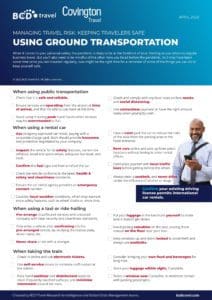
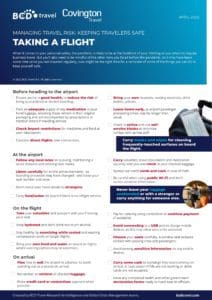
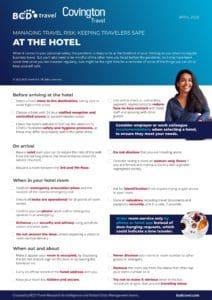
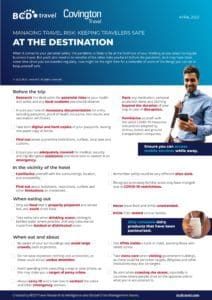
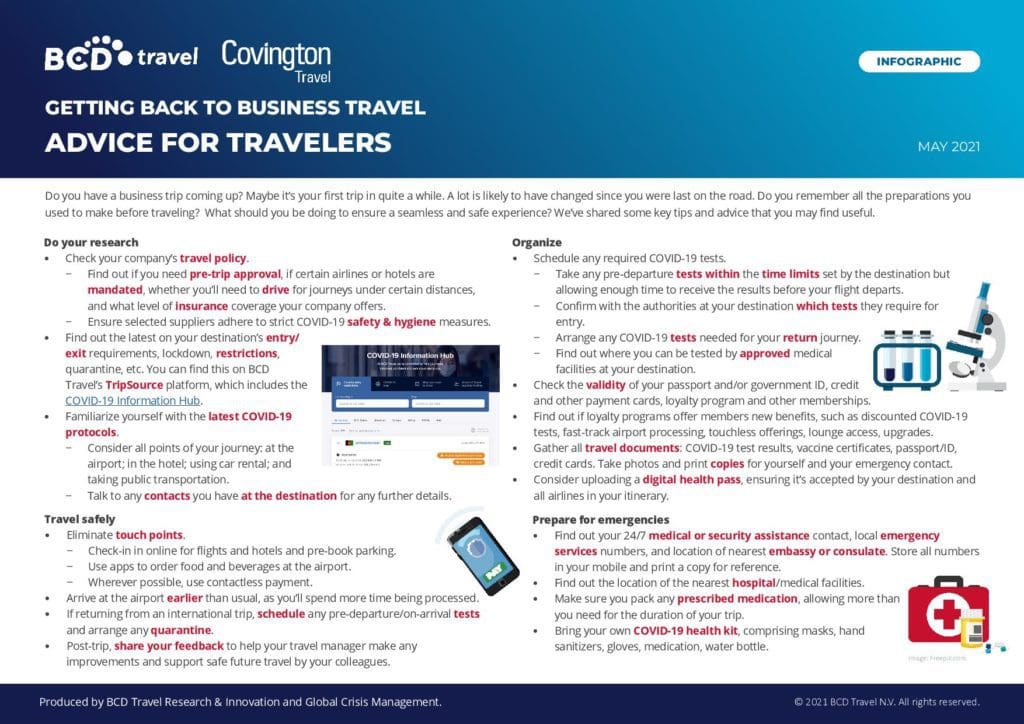
Leave a Reply